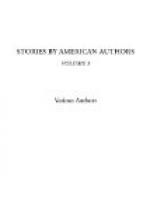Just about the time of his greatest despondency war was declared between Russia and Turkey. The Turkish embassadors were drumming up recruits all over Western Europe. News came to the circus boarding-house that good riders were wanted for the Turkish mounted gensdarmes. Nagy resolved to enlist, and we went together to the Turkish embassy. He was enrolled after only a superficial examination, and was directed to present himself on the following day to embark for Constantinople. He begged me to go with him to the rendezvous, and there I bade him adieu. As I was shaking his hand he showed me the certificate given him by the Turkish embassador. It bore the date of May 25, and at the bottom was a signature in Turkish characters, which could be readily distorted by the imagination into a rude and scrawling Y.
A series of events occurring immediately after Nagy left for Constantinople resulted in my own unexpected departure in a civil capacity for the seat of war in the Russian lines. The line of curious coincidences in the experience of the circus-rider had impressed me very much at the time, but in the excitement of the Turkish campaign I entirely forgot the circumstance. I do not, indeed, recall any thought of Nagy during the first five months in the field. The day after the fall of Plevna I rode through the deserted earthworks toward the town. The dead were lying where they had fallen in the dramatic and useless sortie of the day before. The dead on a battle-field always excite fresh interest, no matter if the spectacle be an every-day one, and as I rode slowly along I studied the attitudes of the fallen bodies, speculating on the relation between the death-poses and the last impulse that had animated the living frame. Behind a rude barricade of wagons and household goods, part of the train of non-combatants which Osman Pasha had ordered to accompany the army in the sortie, a great number of dead lay in confusion. The peculiar position of one of these instantly attracted my eye. He had fallen on his face against the barricade, with both arms stretched above his head, evidently killed instantly. The figure on the alphabet-block, described by the circus-rider, came immediately to my mind. My heart beat as I dismounted and looked at the dead man’s face. It was a genuine Turk.
This incident revived my interest in the life of the circus-rider, and gave me an impulse to look among the prisoners to see if by chance he might be with them. I spent a couple of days in distributing tobacco and bread in the hospitals and among the thirty thousand wretches herded shelterless in the snow. There were some of the mounted gensdarmes among them, and I even found several Hungarians; but none of them had ever heard of the circus-rider.
The passage of the Balkans was a campaign full of excitement, and was accompanied by so much hardship that selfishness got entirely the upper hand of me, and life became a battle for physical comfort. After the passage of the mountain range we went ahead so fast that I had little opportunity, even if I had the enterprise, to look among the few prisoners for the circus-rider.




